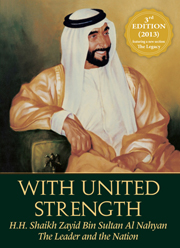Book contents
- Frontmatter
- Contents
- Note on Transliteration
- Abbreviations and Acronyms
- Foreword
- Introduction
- Part I The Heritage
- Part II The Transformation
- Part III The Union
- Part IV The Legacy
- Chapter 11 The Building of Cities
- Chapter 12 The Moral Purpose of Wealth
- Chapter 13 Preserving the Natural World
- Conclusion
- Notes
- Select Bibliography
- Index
- Plate Section
Chapter 12 - The Moral Purpose of Wealth
from Part IV - The Legacy
Published online by Cambridge University Press: 05 September 2014
- Frontmatter
- Contents
- Note on Transliteration
- Abbreviations and Acronyms
- Foreword
- Introduction
- Part I The Heritage
- Part II The Transformation
- Part III The Union
- Part IV The Legacy
- Chapter 11 The Building of Cities
- Chapter 12 The Moral Purpose of Wealth
- Chapter 13 Preserving the Natural World
- Conclusion
- Notes
- Select Bibliography
- Index
- Plate Section
Summary
An effective engine of change, the city plays a special part in the legacy of H.H. Shaikh Zayid Bin Sultan Al Nahyan. Cities, towns and villages were the places where social change could be accomplished in Abu Dhabi. As oil revenues increased he told the people of the nation:
God did not bestow this wealth on Zayid alone, though Zayid was entrusted with the nation's money. Zayid holds himself accountable first, and he is honest with his nation … I invite you to see for yourselves where oil money goes in this country. This money is directed to paving roads, building hospitals, expanding water and electricity services, constructing schools, so that they would be available to every citizen.
The ethical approach that Shaikh Zayid followed is best described as “stewardship,” a term that today is most often used with respect to health care and the environment, which were two of his prime concerns. The World Health Organization's (WHO) World Health Report 2000 defined stewardship as the “function of a government responsible for the welfare of the population, and concerned about the trust and legitimacy with which its activities are viewed by the citizenry.” Recent approaches have emphasized that environmental stewardship is strongly in accord with the Islamic principles that Shaikh Zayid exemplified:
… there is no conflict within the teachings of Islam that would make the application of environmental protection techniques inappropriate; in fact the reverse appears to be true, in that environmental protection is considered to be of great value. This situation would place a responsibility upon a government of an Islamic state rigorously to apply environmental stewardship.
- Type
- Chapter
- Information
- With United StrengthHH Sheikh Zayed Bin Sultan Al Nahyan: The Leader and the Nation, pp. 281 - 290Publisher: Emirates Center for Strategic Studies and ResearchPrint publication year: 2013



